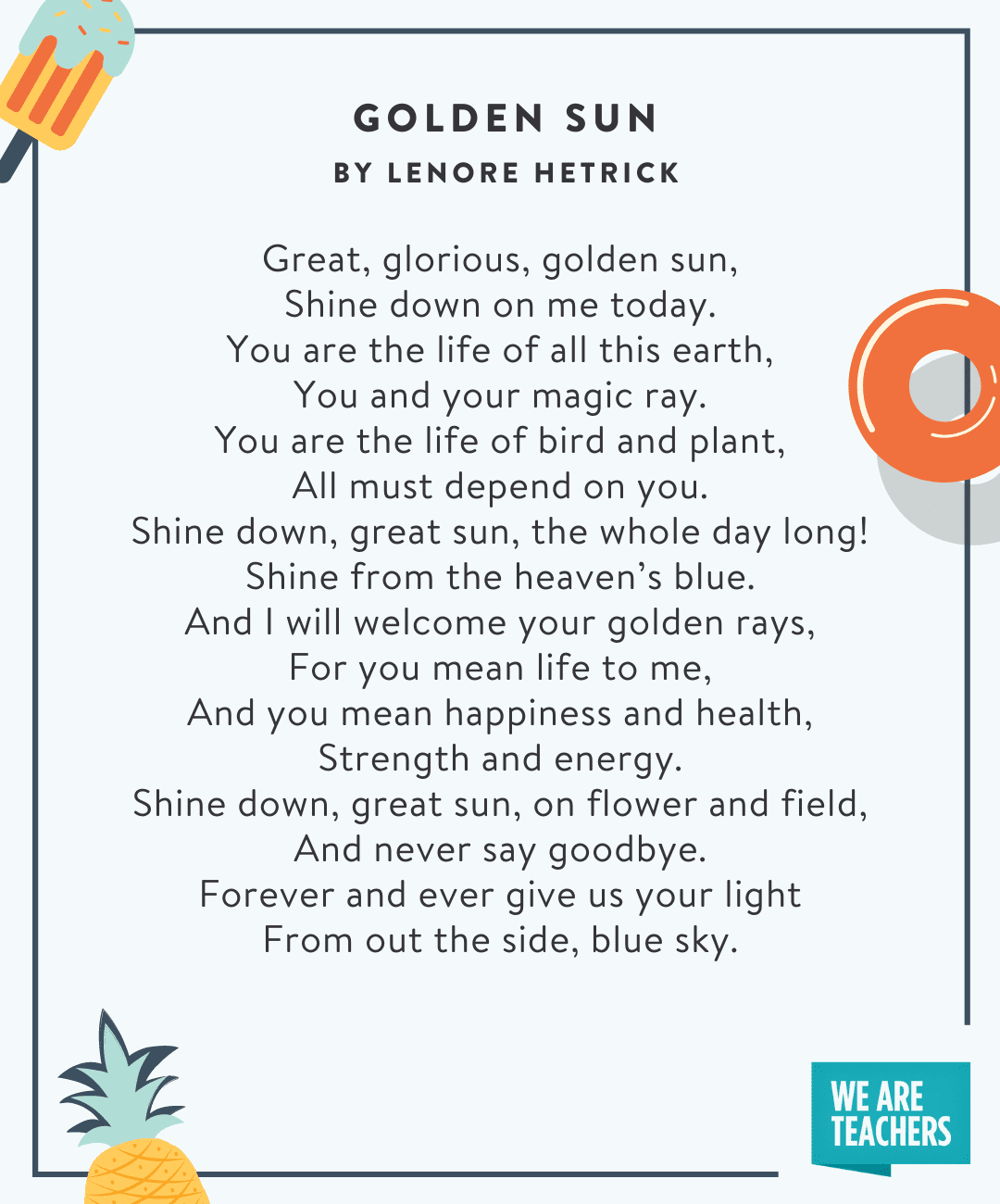
Poem in Summer: An Ode to the Season’s Muse
Summer, with its sun-kissed days and balmy nights, has long inspired poets to pen verses that capture the essence of this vibrant season. The imagery of swaying flowers, chirping birds, and the lazy hum of insects creates a symphony of words that paint a vivid tableau in the reader’s mind.
Poem Writing Styles for "Poem in Summer"
The vers libre style, with its free-flowing lines and lack of rhyme, lends itself perfectly to the organic and ethereal nature of summer. Haiku, with its brevity and focus on nature, allows poets to capture a fleeting summer moment in just a few syllables. The sonnet, with its intricate structure and traditional rhyme scheme, provides a more formal framework for expressing the season’s joys and sorrows.
Poems in Summer
1. Summer’s Embrace
Sunbeams dance upon petals bright,
A chorus of birds fills the air with delight.
Nature’s canvas bursts with vibrant hues,
As summer’s embrace bathes the world anew.
Soft breezes whisper through rustling leaves,
Carrying the scent of sun-ripened sheaves.
Azure skies stretch endlessly above,
A boundless canvas where dreams take flight.
2. Ode to Summer Days
Golden hours stretch as lazy bees hum,
Nature’s lullaby beneath a sun-drenched drum.
Fields of wildflowers, a vibrant sea,
Where butterflies flutter with ethereal glee.
Children’s laughter echoes through the air,
As time seems to slow in summer’s care.
A season of joy, light, and endless play,
A memory etched in summer’s golden ray.
3. Sonnet of Summer’s End
As summer’s reign draws near its close,
Nature’s palette shifts to softer tones.
Golden leaves cascade like amber showers,
Amidst the bittersweet farewell of flowers.
Yet, in the waning light, a beauty lies,
As shadows lengthen and stars paint the skies.
For in the cycle of seasons, we find grace,
As autumn’s embrace replaces summer’s embrace.
How to Write a Poem in Summer
- Observe the season: Immerse yourself in the sights, sounds, and smells of summer. Pay attention to the details that make the season unique.
- Use sensory language: Appeal to the senses of the reader through vivid imagery, metaphors, and similes.
- Experiment with form: Consider the different poem forms available and choose the one that best captures your vision for the poem.
- Read other poems: Study works by renowned poets who have written about summer to gain inspiration and techniques.
Tips for Reading Poetry
- Slow down: Don’t rush through a poem. Take your time to savor the words and images.
- Read aloud: The rhythm and flow of a poem can be more fully appreciated when read aloud.
- Ask questions: Consider the poem’s structure, language, and themes. What is the poet trying to convey?
FAQs
- What is the main theme of "Poem in Summer"? Appreciation of the season’s beauty, joy, and ephemerality.
- Which poets are known for their poems about summer? William Wordsworth, Emily Dickinson, Pablo Neruda, Robert Frost.
Conclusion
Summer, with its abundance of natural wonders, provides an endless source of inspiration for poets. Whether through the vers libre’s organic flow, haiku’s brevity, or sonnet’s structured elegance, poets have captured the essence of the season in countless verses.
Please appreciate the beauty of summer and the gift of poetry. Do not plagiarize others’ works, but rather share and credit the original authors. By doing so, we honor the words that have inspired us and ensure that the tradition of poetry continues to flourish.
